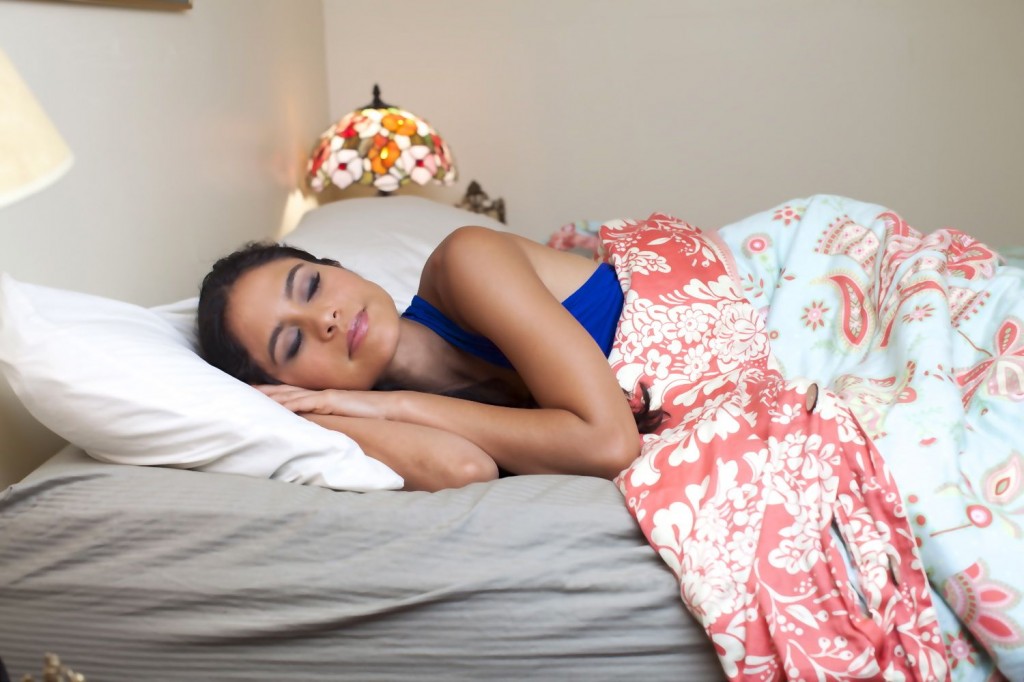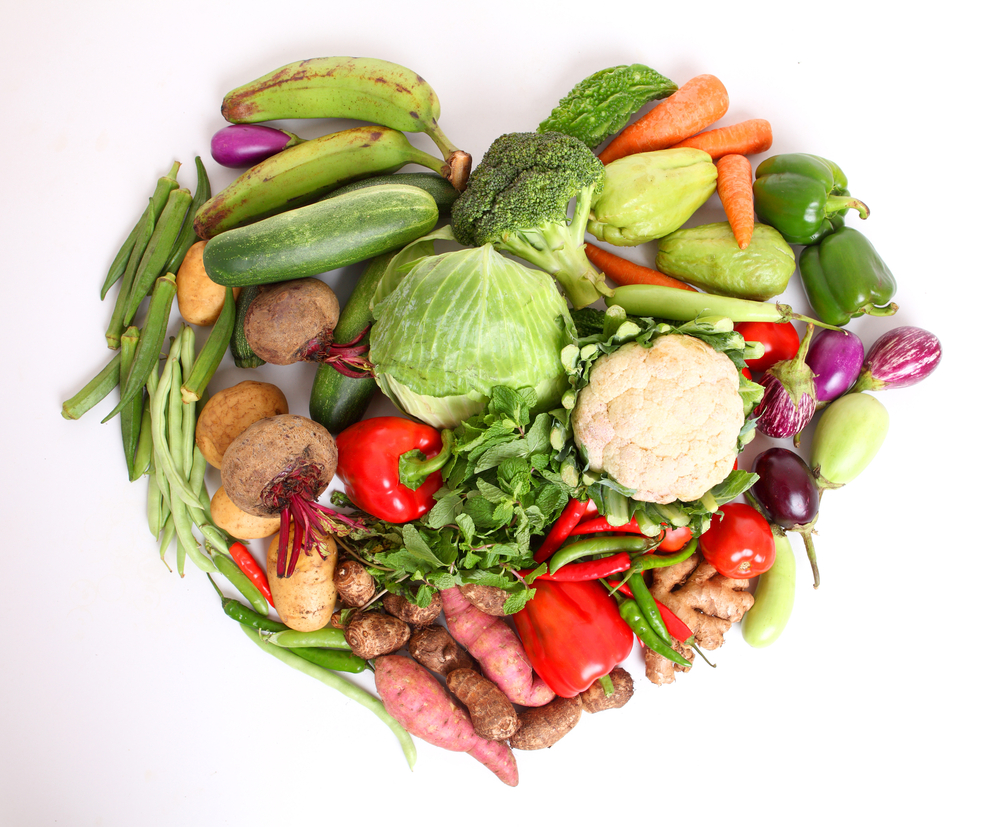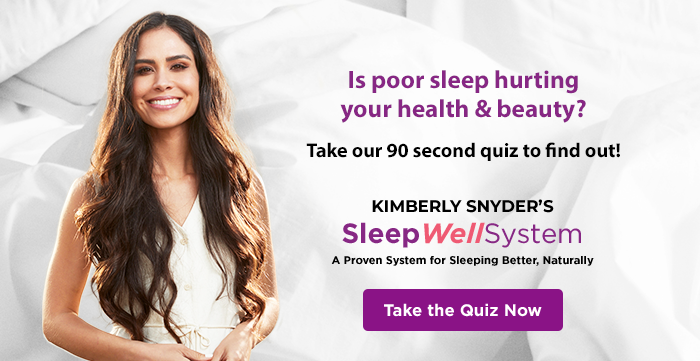Recently, I wrote a post about how “oversleeping” can actually make you more beautiful. Since that time, I’ve received many positive responses and questions — so I wanted to do a follow up post to cover all the bases.
First, let me say that I’m very encouraged by how many of you want to work on prioritizing sleep. It seems like in today’s go-go-go society, it’s commonplace to brag about how little sleep you got the night before, or ignore the fact that you need a certain amount. This is especially true among type A personalities and workaholics.
Sometimes it might feel like you have no choice in the matter — perhaps worry or stress keeps you up and you find it difficult to fall asleep. Other times, you may think you’re doing yourself a favor by putting off sleep for work, or to get more done around the house, or any number of reasons.
Regardless of your reasons, this post will help give you a deeper understanding of sleep, the research around it, and some powerful tips for getting your sleep back on track.

Here I am again! Focusing on some beauty zzzzzz.
What Your Body Does While You’re Sleeping
When you’re asleep, you’re not just being dormant or idle. Sleep is a powerful, biological necessity that aids your body in countless ways:
- Improve your mood
- Keep your appetite stable and junk food cravings under control
- Help you stay (or get) slim [1]
- Slow aging
- Reduce junk food cravings
- Keep you safer (ever drive while groggy?)
- Recharge your energy
- Repair damaged cells and tissues
- Build bone and muscle
- Improve memory and cognitive performance
- Lower your risk of having a heart attack
- Boost the immune system
So How Much Sleep Do You Need?
Actual sleep requirements will vary from person to person based on their diet, their lifestyle, and other variables, but the National Sleep Foundation has broken it down by age. For example, teens need between 8.5 and 9.25 hours and adults only need seven to nine. Children under 10 need more than teens. [2]
Of course, as we noted in our last article on sleep, it can be highly beneficial to sleep beyond 9 hours if your body needs it. Factors that may cause your body to need more sleep are: stress, intense exercise, detoxification/healing, or previous lack of sleep.
One thing to be careful about: many people assume they’ll need less sleep as they age, but that’s a common misperception. You’ll still need that same seven to nine hours, or more, and yes, napping counts toward your total sleep requirements!
While recent studies have attacked the benefits of napping [3], I believe these studies illustrate a cause and effect problem. Someone who routinely gets tired during the day is probably more health-challenged and at risk for disease. Whereas, someone who needs an occasional or even regular short nap to recharge is not in that same category. It seems Harvard sleep researchers believe the latter. [4]
So if you feel the urge to nap, I say go for it! A good ‘ole power nap can definitely help make up for lost sleep and bring about many of the benefits we covered a moment ago.
Did You Know Skimping on Sleep Could Make You Gain Weight?
Studies show that short sleep duration can contribute to current and future obesity, even in (especially in!) children. The older you are, the weaker the link between sleep duration and weight. [5]
There are several theories behind why this is the case, including a lack of sleep’s effects on appetite, physical activity (who wants to work out when they’re exhausted?), and thermoregulation. [6] If you pay attention, you might notice that your body temperature feels a little “off” when you’re trying to function on very little sleep?
A Wisconsin Sleep Cohort study found that as hours of sleep per night went down, BMI proportionally went up. The hormones that regulate hunger and appetite, ghrelin and leptin, were present in a way that meant less energy and a bigger appetite (ghrelin was up and leptin was down). That’s a recipe for obesity if it goes unchecked! [7] Yep, just more motivation to hit the sack!
Poor Sleep Habits Lead to Poor Food Choices
Junk food cravings and fatigue go hand in hand. Sleep deprivation leads you to really want those high-calorie foods that, on a better day when you were thinking more clearly, you’d be able to resist. One study showed that the amygdala (responsible for emotional reactions in the decision-making process) was more active. [8]
Meanwhile, the frontal cortex and insular cortex, which help evaluate appetite, are catching up on some of those Z’s you missed out on (their activity decreases with sleep deprivation), making it easy to talk yourself into grabbing greasy, fatty, or sugary foods. These poor food choices can lead to obesity.
Better Sleep for Improved Heart Health
Short and long-term sleep deprivation may slightly increase your risk for coronary heart disease. One study looked at women who self-reported five or fewer hours per night, six hours, or seven hours of sleep, and then looked at how many coronary events happened to them over the course of ten years. [9]
Those who reported the least amount of sleep had the highest number of coronary events, while those who reported right around seven hours of sleep had the fewest.
However, the number of events for those subjects who got nine or more hours of sleep per night were higher than they were for those who only had seven hours. But the researchers admit this could be a similar issue to what we described a moment ago, namely, that the need for more sleep might indicate lesser health, rather than actually be a cause of heart issues.
More sleep isn’t always better, but as we covered last time, it can be. It really depends on your unique needs — it’s up to you to tune in, listen to your body and ultimately find your sweet spot each night.
How Sleep Affects Inflammation, the Silent Killer
When you don’t sleep as much as you should, the levels of inflammation increase in your body and your immune system doesn’t function as well as it should. The circadian rhythm—which includes sleep, of course—affects the immune system’s ability to perform different functions during the times you’re awake and active and when you’re resting. [10]
If you don’t sleep enough, your immune system is crippled, only able to perform the daytime duties (going about your work or taking care of your kids) and neglecting the nighttime ones, like releasing the growth hormone and prolactin that also play a role in immune function. Cortisol levels also drop as you sleep after daytime elevation, which, as I mentioned above, can affect your weight.
How Proper Sleep Boosts Your Mood
If you tend to put everyone in your families’ needs above yourself… tell yourself that getting a good night’s sleep is good for everyone—by prioritizing sleep, you’re actually helping everyone else in your life.
In other words: sleep for your family’s sake, if not for your own!
You’ll drive more safely and your mood will be a hundred times better than if you’re walking around sleep-deprived. Your memory will also be better, so if you’re supposed to be playing taxi for your kids and running errands for your spouse, you’ll be much less likely to forget if you actually do log those hours! [11]
Your Need for Beauty Sleep
The Beauty Detox diet can transform your life, but you must still get enough quality sleep at night to really maximize the effects. A study found that those who don’t sleep well or long enough at night showed more aging of the skin than those who got more sleep at night. Not sleeping could mean accelerated aging and a weakened ability to fight back against environmental stressors. [12]
You already knew that not sleeping well at night can change your appearance as early as the morning after a late night, but now there’s even a study to back it up. Photos of sleep-deprived women were rated by observers to be sadder and were also perceived to have more fine lines, wrinkles, redness, swelling, and droopiness, plus darker under-eye circles and paler skin. [13]
These findings show that, as important as diet and exercise are, there is no plan on earth that can compensate for a lack of sleep. If you want the best health and beauty, you simply must prioritize sleep. Period.
Conclusion: Other Factors That Could Be Affecting You
By now, I’m sure you see both the importance and benefits of sleep. Yet if sleep is so clearly and obviously crucial to our health, why do we often prioritize it so little?
The answer, in part, may be found in some factors I cover in the next Beauty Detox book, The Beauty Detox Power
Let me explain: sometimes, there are positive actions that we want to do, or that we actually do, such as eating properly — and yet we don’t always get the results we hoped for. And as you’ll learn in this new book, the results don’t always show up as we hoped, in part, because we are complex energetic beings, profoundly affected by our mind and emotions.
Just as it’s possible to eat perfectly, yet struggle or plateau because of some underlying thoughts or emotions that are not aligned with our goals — it’s possible to want or even get better sleep, but not experience all the possible benefits we deserve.
Diet and sleep are just the beginning. There’s so much joy, power and fulfillment possible for you!
While this post illustrates just how important sleep is, The Beauty Detox Power will help you tap into the power and energy you need to experience deep, lasting results on ALL levels.
Overall, this is a VERY exciting time in the community — I can’t wait to share more with you!
Love,
Kimberly
Research:
[1] https://www.webmd.com/diet/sleep-and-weight-loss [2] https://www.sleepfoundation.org/article/how-sleep-works/how-much-sleep-do-we-really-need [3] https://www.livescience.com/44999-napping-death.html [4]https://www.health.harvard.edu/newsletters/Harvard_Health_Letter/2009/November/napping-may-not-be-such-a-no-no [5] https://www.ncbi.nlm.nih.gov/pubmed/18239586 [6] https://www.ncbi.nlm.nih.gov/pubmed/23204610 [7] https://www.ncbi.nlm.nih.gov/pmc/articles/PMC535424/ [8] https://www.nature.com/ncomms/2013/130806/ncomms3259/full/ncomms3259.html [9] https://archinte.jamanetwork.com/article.aspx?articleid=215006 [10] https://www.ncbi.nlm.nih.gov/pmc/articles/PMC3256323/ [11] https://www.webmd.com/sleep-disorders/sleep-deprivation-effects-on-memory [12] https://www.uhhospitals.org/about/media-news-room/current-news/2013/07/estee-lauder-clinical-trial-finds-link-between-sleep-deprivation-and-skin-aging [13] https://www.uhhospitals.org/about/media-news-room/current-news/2013/07/estee-lauder-clinical-trial-finds-link-between-sleep-deprivation-and-skin-aging






I totally agree Kimberly. I have read your two books and I can’t wait to read the third one. Thank you for sharing your knowledge and for inspire me to make better choices when cooking and eating. This article was very interesting because I believe sleeping enough is as important as eating healthy.
Thank you for sharing your personal experience Lucy, and so happy to hear you are implementing the BD lifestyle. Happy sleeping! ;)